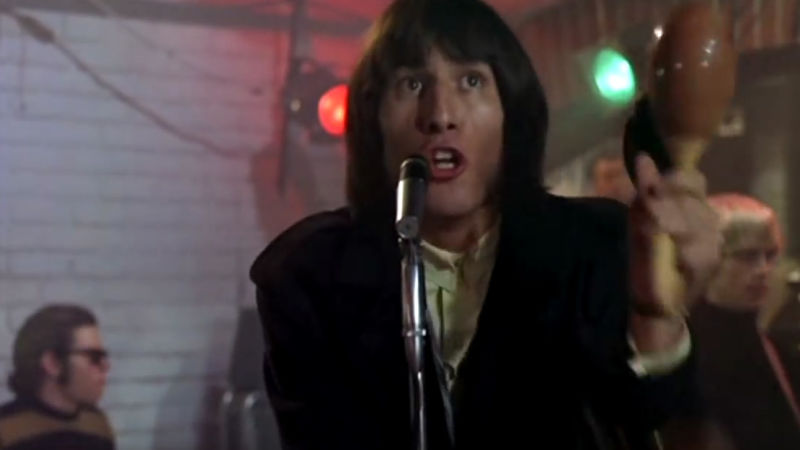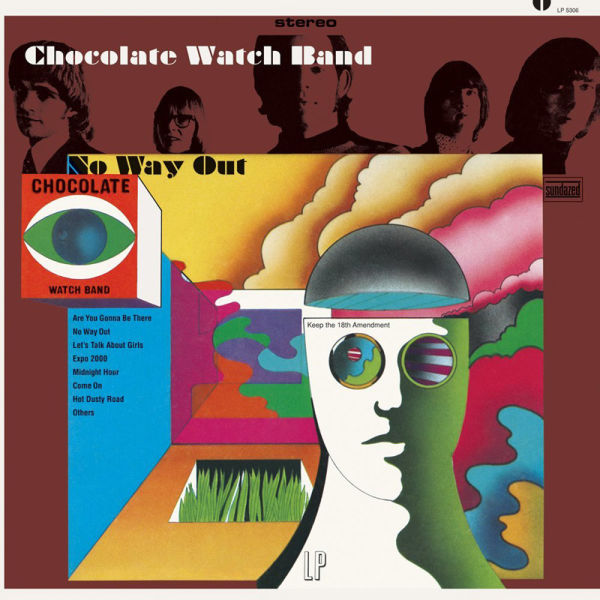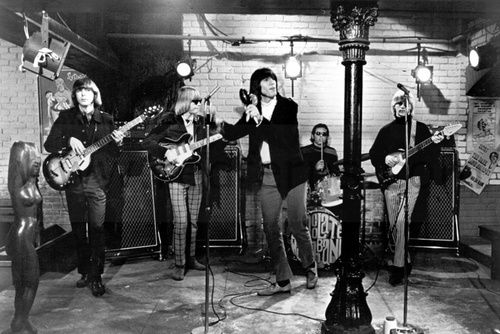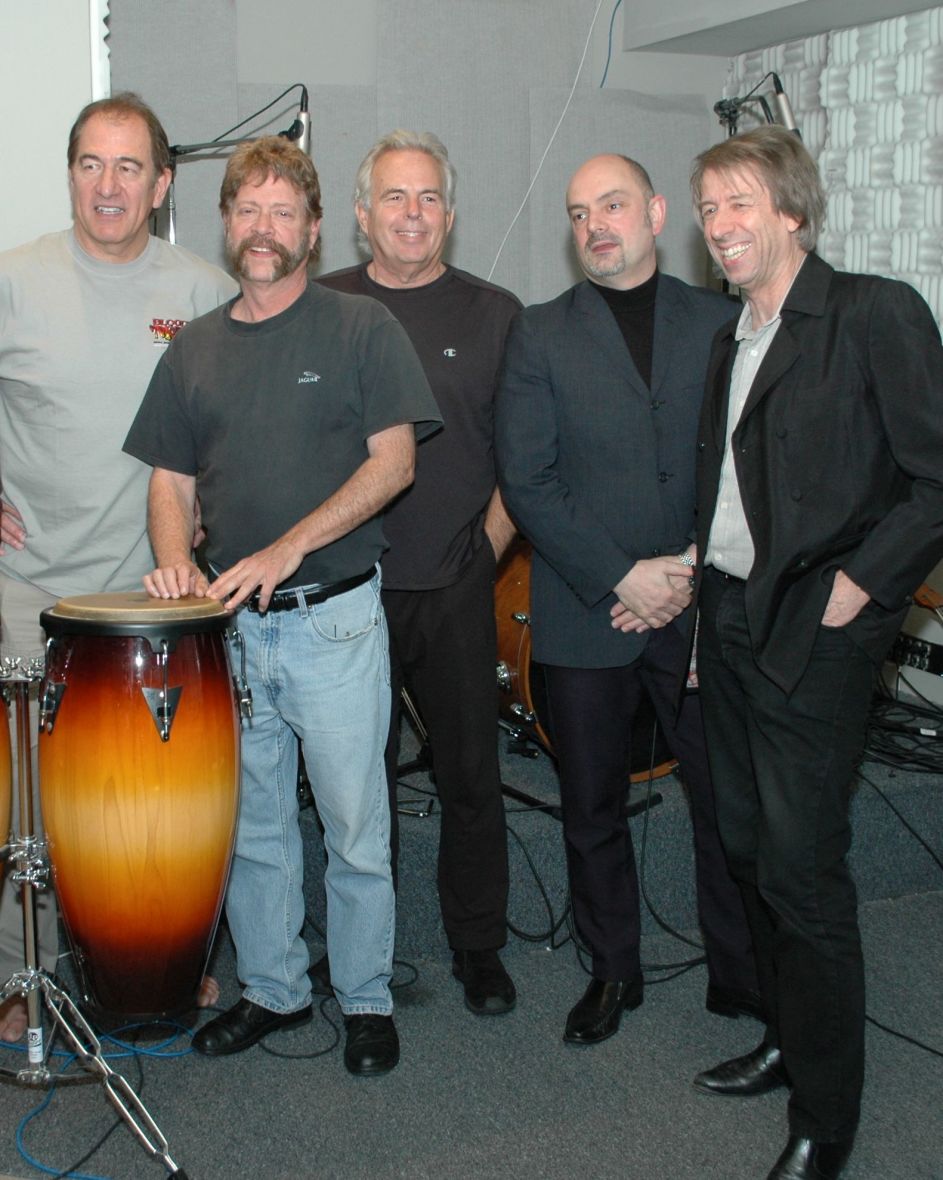Listening to the Chocolate Watchband’s snarly, unforgettable versions of Ray Davies’s “I’m Not Everybody Else” and Annette Tucker and Nancie Mantz’s “I Ain’t No Miracle Worker” — renditions that vanquished all others in their wake — it’s not tough to imagine the South Bay’s finest ’60s garage rock band claiming a chart-topping place beside Big Brother & the Holding Company and Jefferson Airplane. Bill Graham certainly pictured that in the Watchband’s future when he tried to woo them to sign with him as their manager and let him send them out on tour with the Dead and the Airplane.
Instead, a host of unfortunate choices led the Watchband down the garden path toward surrendering control over their recordings, splintering and eventually self-destructing five short years after their inception. “Some of those problems, nowadays, are quite funny!” exclaims David Aguilar, now 69, vocalist and one of the few members of the Watchband who wrote songs that made it onto their LPs.
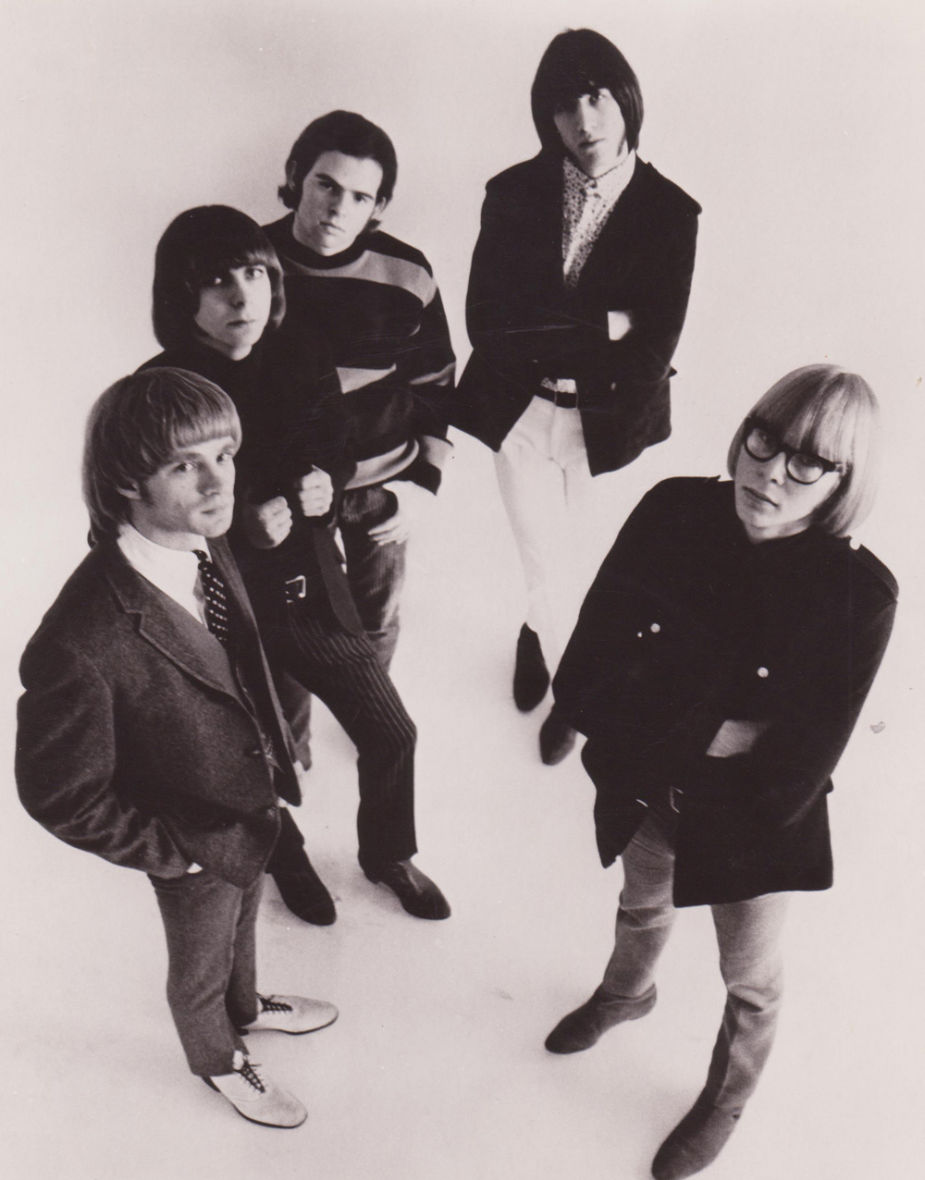
“The biggest problem was our name,” he continues jovially, from a cafe in downtown Aspen, Colorado near his current home. “When our record contract went to Tower Records, we were being marketed with Pink Floyd. But somebody, somewhere, in some office, thought we were a black rock ‘n’ roll group, so they sold us to a black rhythm and blues label, Uptown. Lo and behold, the first Uptown Records concert they booked us into was at [the Oakland] Arena, and we walked in — it was with the Coasters and Chuck Berry — and they walked in, and I don’t know whose jaw dropped down more!”
Today it makes for good story, but back in the day, it was simply one in a series of missteps and outrages besetting the band — which some critics now regard as not only the best, most aggressive and rangy British Invasion-inspired garage rock unit to emerge from the ’60s Bay Area, but perhaps the entire country. Kindred San Jose spirits Count Five may have created the charting power stomp of “Psychotic Reaction,” but couldn’t keep it together for much longer than that. The Watchband, meanwhile, made a name for themselves throughout the Bay Area with their live shows, holding their own alongside everyone from the Mothers of Invention and the Grateful Dead to Jimi Hendrix and the Doors.
Aguilar was not the first vocalist for the Watchband, which guitarists Mark Loomis and Ned Torney began tentatively amid the eucalyptuses of Foothill College in Los Altos Hills in 1965. But when the time came to put together a solid new Watchband to replace departed singer Danny Phay, Loomis knew that Aguilar, a science student at San Jose State, had the right bad attitude and a righteous way around a blues-rock hook.
